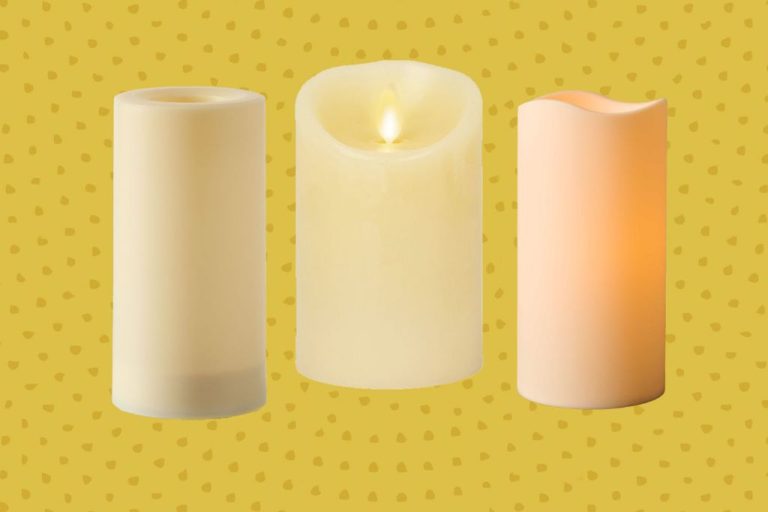Do Citronella Candles Keep Mosquitoes Away?
Citronella candles have long been touted as an effective natural method for repelling mosquitoes and other biting insects. The candles contain oil from the citronella plant, a kind of grass native to parts of Asia. The oil gives off a distinct lemony scent that is believed to mask human scents, making it harder for mosquitoes to detect and target people. Using citronella candles, especially outdoors in the evening, has become a popular way for people to try to enjoy outdoor spaces more comfortably without being bothered by mosquitoes.
However, there has been considerable debate around just how well citronella candles work for repelling mosquitoes. Some swear by placing citronella candles or torches around patios, decks, and yards to create a “protective bubble” against mosquitoes. But scientific studies have produced mixed results, leaving many consumers uncertain if the candles are worth the investment. Evaluating the evidence on both sides can help shed light on the true effectiveness of citronella candles.
What Are Citronella Candles?
Citronella candles are made from citronella oil, which is an essential oil derived from lemongrass plants in the Cymbopogon genus. The most common species used to make citronella oil are Cymbopogon nardus and Cymbopogon winterianus. To extract the oil, the lemongrass is put through a steam distillation process. The end product is a yellowish oil with a lemony, grassy scent. This citronella essential oil is then mixed with wax to create citronella candles.
The key component in citronella oil that helps repel mosquitoes is citronellal. This is what gives the oil its distinctive odor. When citronella candles are lit, the citronellal is released into the air along with the smoke. This strong scent masks other attractants and makes it harder for mosquitoes to find human targets. The aroma overwhelms the mosquitoes’ senses so they are less likely to bite.
Citronella candles first became popular in the early 1900s. Since then, they have been commonly used outdoors during warmer months as a natural way to help keep mosquitoes at bay. The candles are often placed around patios, decks, gardens, and other areas where people congregate outdoors. Their goal is to create a protective bubble of citronella aroma to make a space less inviting for mosquitoes.
Source: https://www.urbanorganicyield.com/do-citronella-plants-repel-mosquitoes/
How Citronella Candles Work
Citronella candles release citronella oil into the air as they burn. Citronella oil comes from lemongrass and has a strong, lemon-like scent. When citronella oil is released into the air around the candle, it helps mask the scent of humans and animals. Mosquitoes use scent to locate hosts to bite, so the strong lemon scent from citronella oil can make it harder for mosquitoes to find humans and animals to bite.
The candle’s wick burns and melts the wax which contains the citronella oil. As the melted wax pools around the wick, it releases citronella oil into the air through evaporation. The continuous burning of the wick sustains this process, allowing a constant supply of citronella oil to be released as long as the candle remains lit.
According to this source, citronella oil only masks scents in the immediate vicinity around the candle, so multiple candles may be needed for larger spaces. The scent also dissipates quickly once the candle is blown out.
Studies on Effectiveness
Several scientific studies have examined the effectiveness of citronella candles in repelling mosquitoes.
A 1996 study published in the Journal of the American Mosquito Control Association tested 3% citronella candles and 5% citronella incense against mosquitoes in the field. The study found that the citronella products provided little to no protection against mosquito bites. There was no significant difference in the number of mosquito landings between the citronella and unscented (control) products [1].
Another field study published in 2006 compared the effectiveness of citronella candles, 5% and 15% deet, and plain candles without active ingredients. The results showed that the 15% deet provided complete protection from mosquito bites for 1.5-5 hours. In contrast, the citronella candles did not result in a significant reduction in bites compared to plain candles over a 5 hour period [2].
Based on the evidence, scientists concluded that citronella candles do not effectively repel mosquitoes or prevent mosquito bites. The smoke may provide a limited physical barrier, but does not act as an insect repellent. Overall, citronella candles have not been shown to be more effective than regular candles.
Factors That Impact Effectiveness
There are several factors that can impact the effectiveness of citronella candles in repelling mosquitoes:
Distance
Studies have shown that citronella candles only provide protection within a small range, usually a 3-6 feet radius around the candle1. The compounds in citronella oil quickly dissipate into the air, so mosquitoes don’t have to be very far away to be unaffected by the candle.
Wind
Wind speeds can significantly impact the effectiveness of citronella candles. Even a light breeze can quickly carry away the repelling compounds, leaving no residual barrier against mosquitoes2. For best results, citronella candles should only be used indoors or on windless nights.
Candle Potency
Not all citronella candles contain the same concentrations of citronella oil. The potency can range from less than 1% to up to 10% citronella oil. More potent candles with higher percentages of the essential oil tend to provide greater mosquito repelling effects1. However, the effects diminish rapidly beyond a small radius.
Tips for Maximizing Effectiveness
There are a few things you can do to get the most mosquito protection from citronella candles:
Place candles strategically – Position candles near seating areas, doorways, and other spots where you’ll be spending time outside. Place candles upwind from where you’ll be so the breeze blows the scent in your direction.
Use more potent oils – Opt for candles made with higher concentrations of citronella oil, like 5-10%, for stronger mosquito repellency. You can also look for extra oils like lemongrass, eucalyptus, or geranium added to increase the mosquito-repelling power.
Combine with other repellents – Layering citronella candles with other mosquito deterrents like torches, bug zappers, and repellent plants can enhance protection. Wearing mosquito repellent on your skin while using candles is also a good tactic.
According to this source, adding more potent oils like lemongrass or geranium can make citronella candles more effective at repelling mosquitoes when used strategically near seating areas.
Limitations of Citronella Candles
While citronella candles may provide some repellent effects, they have significant limitations that prevent them from being an effective substitute for DEET or other chemical repellents in areas with high risk of mosquito-borne illnesses.
One key limitation is that the area of effect from a citronella candle is quite small. Studies show the repellent effect drops off within a 3-5 foot radius of the candle[1]. This makes them impractical for protecting an entire backyard or other large area.

Additionally, citronella candles cannot create a barrier against mosquitoes like DEET. The repellent effect relies on dispersing small amounts of citronella oil into the air, which mosquitoes may avoid. But it does not prevent them from biting if they do come into contact with skin.
For these reasons, citronella candles should not be relied upon as a primary protective measure against mosquitoes in regions where diseases like malaria, dengue, yellow fever, or West Nile virus pose significant health risks. DEET, picaridin, and other chemical repellents applied directly to the skin are vastly more effective for preventing mosquito bites and should remain a first line of defense.
Risks and Safety Concerns
While citronella candles may seem harmless, there are some risks and safety concerns to be aware of:
Risk of Burns: Like any open flame, citronella candles pose a fire and burn risk, especially if left unattended or placed near flammable objects. The National Fire Protection Association recommends placing citronella candles 3-5 feet apart and avoiding indoor use to reduce risk of burns or unintended fires (Source).
Irritation and Toxicity: Citronella oil can cause skin and eye irritation in some individuals, especially with prolonged exposure. There are also concerns about potential toxicity to pets like cats and dogs if ingested, though evidence is limited (Source). Avoid use around small children and pets.
Indoor Air Quality: The smoke released from burning citronella candles can potentially worsen indoor air quality and aggravate respiratory conditions like asthma. Use only in well-ventilated outdoor areas.
Overall, citronella candles require cautious use and supervision around children and pets. Their risks can be minimized by following safety guidelines, but alternatives may be preferable for households with health sensitivities or fire hazards.
Alternatives to Citronella Candles
While citronella candles can help repel mosquitoes, they are not 100% effective. There are other options to consider using instead of or in addition to citronella candles:
Other Plant-Based Repellents
Certain plant oils and extracts can act as natural mosquito repellents when applied to the skin. Some examples include:
- Lemon eucalyptus oil – Studies show lemon eucalyptus oil is almost as effective as DEET when used as a topical repellent. It provides protection similar to a low concentration of DEET.
- Lemongrass oil – Research indicates that lemongrass essential oil provides moderate mosquito protection for up to 2 hours when applied to the skin.
- Clove oil – Some research shows clove oil can provide up to 95% protection against mosquitoes for up to 3 hours when applied topically.
- Thyme oil – One study found thyme essential oil provided up to 91% protection against mosquitoes for up to 90 minutes.
Oils should be diluted properly for safe topical use. Always do a patch test first.
Fans
Setting up fans indoors or outdoors can help deter mosquitoes. Mosquitoes are relatively weak flyers, so even a small breeze can disrupt their ability to land on you. Fans are a simple way to create wind to repel mosquitoes.
Protective Clothing
Wearing loose, long sleeved tops and pants can provide a physical barrier against mosquitoes. Insect repellent can also be applied to clothing for added protection. Mosquito netting can be used over infant carriers when outdoors.
Conclusion
In conclusion, research shows that citronella candles can help repel mosquitoes, but their effectiveness is limited. Studies found citronella candles reduced mosquito bites by roughly 42-48% compared to ordinary candles. However, results varied based on conditions. Citronella candles are more effective in confined outdoor spaces and when there is limited wind or air currents. They provide some protection, but should not be solely relied on to prevent mosquito bites.
To maximize effectiveness, use citronella candles alongside other protective measures like bug sprays, protective clothing, and eliminating standing water. Be sure to place citronella candles within 15 feet of gathering areas. Avoid excessive smoke and re-light candles frequently for best results. Use caution with fire and supervise candles at all times. Consider safer mosquito-repelling alternatives like electric repellent devices. While citronella candles shouldn’t be the only option, they can provide some additional protection from mosquitoes when used properly.




